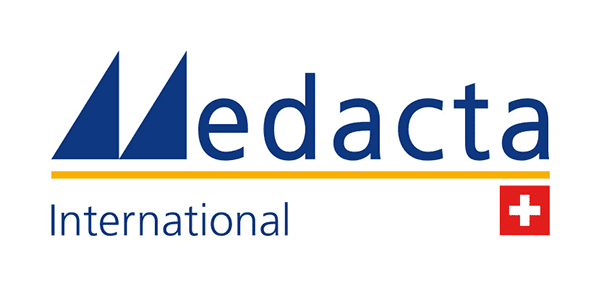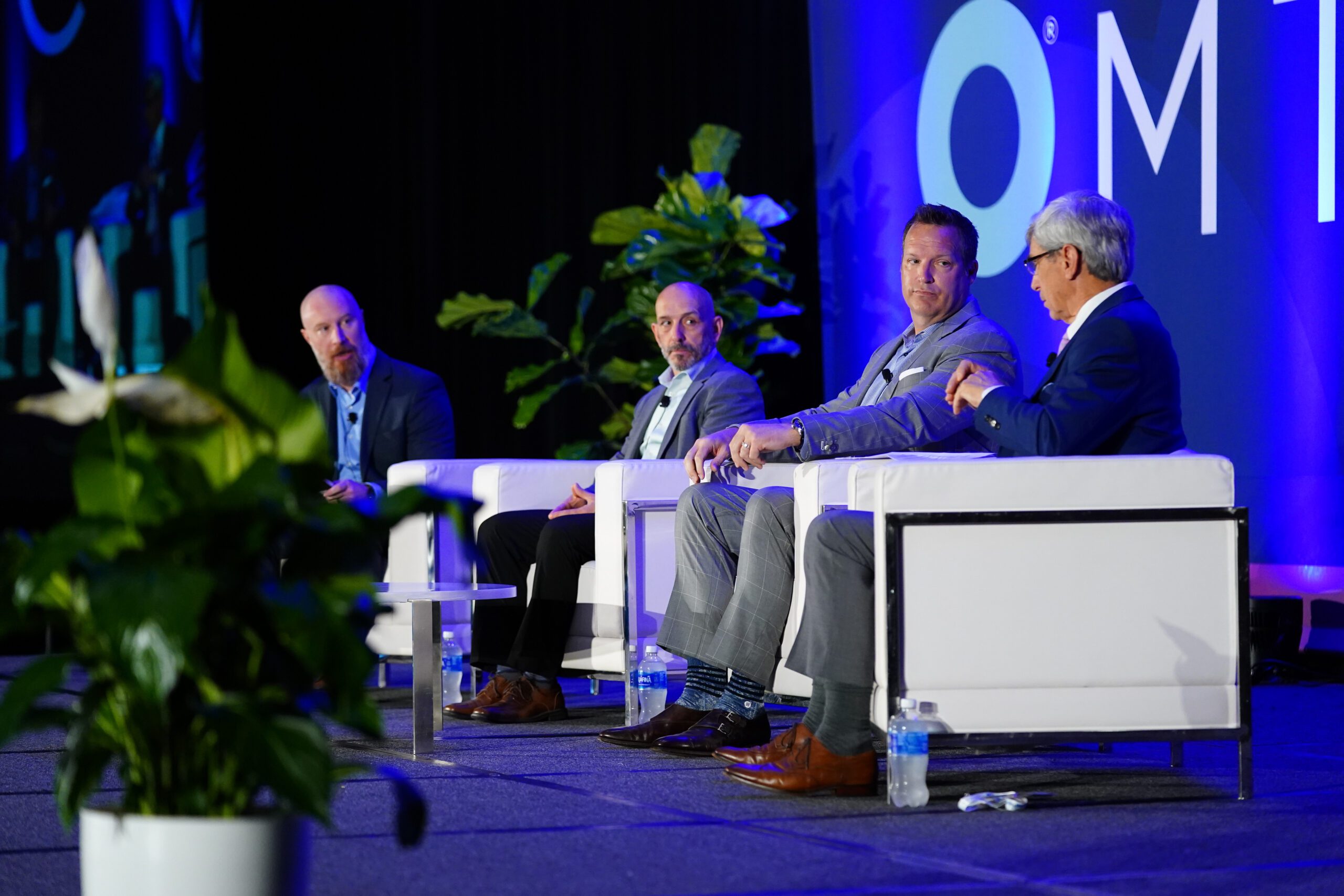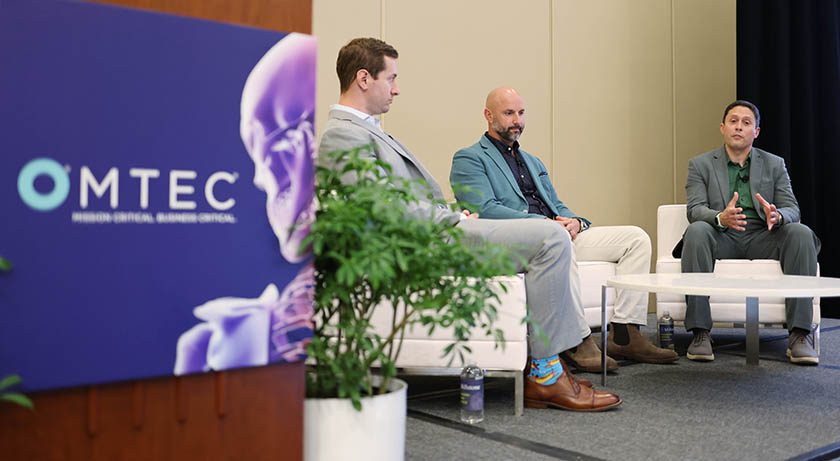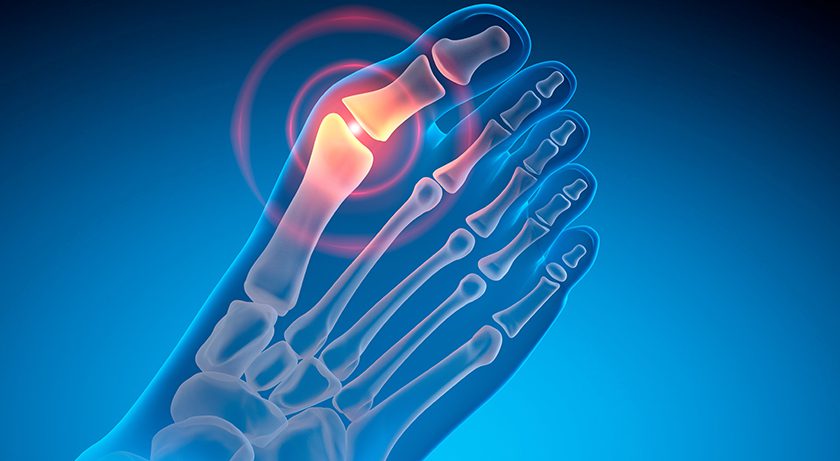

 Copy to clipboard
Copy to clipboard 
In 2018, Francesco Siccardi was appointed CEO of Medacta, taking the helm from company founder, Dr. Alberto Siccardi. Mr. Siccardi has led the company through major changes, including an IPO, expansion into new market segments and now COVID-19.
Medacta achieved 2019 revenue of $349 million, +13.9% vs. 2018, making them the 16th largest orthopedic company, by our estimate. The company’s robust growth is attributable to its cadence on new technology, its Ambulatory Surgical Center strategy and its strong focus on surgeon education.
We interviewed Mr. Siccardi about market opportunities, headwinds and strategies over two interviews, one before the spread of the coronavirus and then again in April. Below are edited responses from our conversation.
What are the greatest opportunities for growth in the next two to three years? Why?
Mr. Siccardi: The orthopedic sector is – and must continue to be – an ever-changing

Francesco Siccardi, Chief Executive Officer, Medacta International
sector, in which innovation plays a fundamental role. With an aging demographic and the desire to remain active longer, the number of orthopedic and spinal procedures will continue to grow worldwide. More patients consider orthopedic surgery in order to maintain a vibrant lifestyle. Young people tend to experience more joint problems, while revision procedures for total joints grow as a result of surgical interventions at a younger age and a longer life expectancy.
Both young and older patients lead active lifestyles and have very high expectations and functional demands. This is the reason that orthopedic companies, surgeons and healthcare systems are committed to continuously improving the standard of care and patients’ outcomes. Orthopedic companies face the challenge to offer patients, surgeons and healthcare systems highly performing products, which can respond effectively to the needs of an increasingly demanding population.
In order to effectively respond to patients’ expectations and to the healthcare system’s need for both efficiency and sustainability – that are becoming increasingly important following the COVID-19 outbreak – we are focusing on minimally invasive techniques and personalized solutions. These include pre-operative 3D-planning platforms and patient-matched technologies that can help optimize surgery and reduce unexpected events while minimizing recovery time and maximizing longevity of the implant. A complete and profound knowledge of the human body is crucial in order to develop personalized solutions: our MyBody Database consists of 90,000 CT, MRI and biomechanical models, as well as computer assisted/application-based systems in connection with surgical planning and navigation.
A strong collaboration with surgeons is another critical success factor, as from this collaboration, Medacta is able to understand the unmet clinical needs and develop solutions with an increased efficiency for the healthcare system, in particular in the field of minimally invasive techniques such as the AMIS total hip replacement or the newly launched MIS MySpine MC for pedicle screw placement.
What headwinds do you expect the market to face? Why?
Mr. Siccardi: The widespread outbreak of COVID-19 has impacted our business. Starting from March 2020 we have seen a severe reduction of elective surgeries in several countries. Elective procedures have been and will be deferred depending on the evolution of the situation. We expect that orthopedic patients will generate waiting lists in different markets and, depending on the duration of the deferral of elective surgeries, a recovery could start later in the year.
Once the situation normalizes, an increased pressure for healthcare systems will be the natural consequence of the pandemic, as there will be a growing number of procedures and limited resources which do not grow proportionally to the number of patients.
Now more than ever, surgeons and healthcare systems wish that turnover time in the operating room is optimized and the postoperative period the best possible. This is why minimally invasive procedures are becoming increasingly important as well as single-use products, designed to streamline operating room workflow, like our unique GMK Efficiency Knee Pack.
From a sustainability point of view and regardless of the COVID-19 impact, the higher costs for healthcare systems are caused by revision surgeries due to failure of previous implants. Revision surgeries have an impact both on healthcare sustainability – they are more complex and longer than primary procedures –and on society, because revision patients experience a long period of inactivity and prolonged suffering, and the results are often less favorable and lasting than primary surgeries. Healthcare systems should therefore be ready to invest more, in favor of the quality of the products and solutions they provide.
In 2018, together with Geisinger Health – one of the most innovative health systems in the U.S. – we initiated a lifetime guarantee for joint replacement. At first intended for hip replacement, we have extended this warranty program to knee replacement and revision knee surgery. This means that Medacta and Geisinger stand behind the full cost of care associated with hip and knee replacement surgeries over a patient’s lifetime. The program also covers revision surgeries performed for patients with previous knee replacements that have failed, even if the original surgeries were performed outside of the Geisinger health system or with implants from other manufacturers.
Medacta’s growth continues to outpace that of the market. To what do you attribute your success?
Mr. Siccardi: Innovation impacting both patient satisfaction and healthcare sustainability have been a focus for Medacta since inception, and are now fundamental pillars of our business strategy. The more innovation, the more medical education is required, and that’s where Medacta with its M.O.R.E. (Medacta Orthopaedic Research and Education) Institute really excels.
For us, innovation—the foundation of all our projects and the basis of our growth strategy—began with implants and minimally invasive techniques. That initial direction has evolved into personalized medicine, with the aim of providing customized solutions for every patient.
Our philosophy is that education is an indispensable tool for transforming innovation into concrete benefits for patients, surgeons and healthcare systems. Innovation requires Education is much more than a claim for us; it’s the key of our way of doing business. With this mission in mind, we created the M.O.R.E. Institute in 2004 to provide continuous support to healthcare professionals worldwide and facilitate the adoption and sharing of knowledge of both innovative surgical techniques and products.
Medical education has been a fundamental pillar of Medacta’s long-term value-creation strategy since its foundation, and despite the current challenging situation due to COVID-19, Medacta’s commitment to education has not changed.
We have recently launched the M.O.R.E. in Touch program and inaugurated our new medical education platform, Medacta TV. The M.O.R.E. in Touch program is a series of webcasts and web-based events discussing current concepts in orthopedics, with the aim of supporting the medical community during this global pandemic. These web-based events are available on Medacta TV, which is Medacta’s streaming platform providing access to many hours of medical education, now completely redesigned.
In this time of physical distancing, our goal is to bring the medical community even closer. The aim of the M.O.R.E. in Touch program is to connect expert physicians from all over the world, making top-level medical education available everywhere and at any time. We are thrilled to be able to introduce this program, allowing surgeons to share their experience and expertise with a few clicks. During challenging times, like the one we are facing right now, it is essential to be able to react quickly. With the new Medacta TV platform we want to give our contribution to the scientific community and assist expert surgeons in continuing their work, while discussing and developing ideas in order to move the orthopedic industry forward.
We design and project our products and solutions with the aim of improving patient well-being and facilitating the work of medical professionals, healthcare administration and logistics staff. We are committed to developing product offerings that allow for cost reductions, migration of procedures into Ambulatory Surgical Centers (ASCs) and optimization of the efficiency in the operating room. Particularly following the COVID-19 pandemic with efforts being made to recover the deferred surgeries, efficiency in the operating room will become crucial. Some examples of our solutions that can increase healthcare sustainability include:
- The AMIS platform with its dedicated instrumentation (such as the AMIS Mobile Leg Positioner), which is meant to streamline, simplify and facilitate reproducibility of the anterior approach.
- GMK Efficiency, which has been conceived to optimize instrument management, providing significant benefits in the O.R. and throughout the hospital supply chain.
- MyKnee, which allows execution of pre-operative 3D planning based on CT or MRI images of the patient’s knee, with potential benefits for both the surgeon and the patient.
- MySpine and MIS MySpine MC, which was recognized as 2019 “Best Healthcare Navigation/Robotics Solution” by MedTech Breakthrough.
You’ve expanded into the sports medicine market. Where is there room for innovation and growth there?
Mr. Siccardi: Sports medicine is a rather young and fast-moving segment of the orthopedic market in which innovation plays a crucial role. It is also one of the fastest growing segments with a more active population, with more people having access to treatments.
Our sports medicine business unit complements our strategy for delivery of care, with the aim to design minimally invasive procedures to allow patients to return quickly to daily activities.
In the sports medicine market various new trends are emerging, such as changing treatments (e.g. the need for saving meniscus by suturing instead of resecting it), changing materials and trends (such as biocomposite devices) and the effectiveness of single-use instruments, which have the potential to reduce infection risk while improving healthcare sustainability.
We believe that innovative techniques, improved products (both in terms of designs and material) and medical education are the key for our growth in the sports medicine market. The M-ARS ACL (Medacta Anatomic Ribbon Surgery for ACL) is an example: based on extensive anatomy studies, specific instruments have been designed and developed in collaboration with a team of internationally renowned key opinion leaders in order to support an innovative technique to treat ACL injuries. Whilst the technique and the specific instruments have been validated, we have developed a customized range of implants and a tailored education program.
What personally excites you about the orthopedic market and the opportunities ahead for Medacta?
Mr. Siccardi: Overall, we are confident that mid- and long-term fundamentals have not changed despite the COVID-19 pandemic.
Hospitals, ASCs and providers will be even more incentivized to deliver a higher quality of care at a reduced overall cost. The ability to maintain quality outcomes while balancing improved productivity with cost-efficiencies is critical. We believe this challenge provides a unique opportunity to move forward, by creating new care delivery models for facilities, providers and patients that are built to last. We are rising to this challenge with our “MPower Sustainability Solutions.”
Moreover, we are excited to leverage our unique education platform and increase collaborations with university hospitals all over the world. We will focus on country-specific projects and trends, always faithful to our goal of improving outcomes for healthcare systems in terms of patient satisfaction, efficiency and economic savings.
“Redefining better” is our commitment for the future. We want to continue moving forward and developing innovations and surgeon education programs focused on getting patients back to their healthy and active lifestyles.
In 2018, Francesco Siccardi was appointed CEO of Medacta, taking the helm from company founder, Dr. Alberto Siccardi. Mr. Siccardi has led the company through major changes, including an IPO, expansion into new market segments and now COVID-19.
Medacta achieved 2019 revenue of $349 million, +13.9% vs. 2018, making them the 16th largest...
In 2018, Francesco Siccardi was appointed CEO of Medacta, taking the helm from company founder, Dr. Alberto Siccardi. Mr. Siccardi has led the company through major changes, including an IPO, expansion into new market segments and now COVID-19.
Medacta achieved 2019 revenue of $349 million, +13.9% vs. 2018, making them the 16th largest orthopedic company, by our estimate. The company’s robust growth is attributable to its cadence on new technology, its Ambulatory Surgical Center strategy and its strong focus on surgeon education.
We interviewed Mr. Siccardi about market opportunities, headwinds and strategies over two interviews, one before the spread of the coronavirus and then again in April. Below are edited responses from our conversation.
What are the greatest opportunities for growth in the next two to three years? Why?
Mr. Siccardi: The orthopedic sector is – and must continue to be – an ever-changing

Francesco Siccardi, Chief Executive Officer, Medacta International
sector, in which innovation plays a fundamental role. With an aging demographic and the desire to remain active longer, the number of orthopedic and spinal procedures will continue to grow worldwide. More patients consider orthopedic surgery in order to maintain a vibrant lifestyle. Young people tend to experience more joint problems, while revision procedures for total joints grow as a result of surgical interventions at a younger age and a longer life expectancy.
Both young and older patients lead active lifestyles and have very high expectations and functional demands. This is the reason that orthopedic companies, surgeons and healthcare systems are committed to continuously improving the standard of care and patients’ outcomes. Orthopedic companies face the challenge to offer patients, surgeons and healthcare systems highly performing products, which can respond effectively to the needs of an increasingly demanding population.
In order to effectively respond to patients’ expectations and to the healthcare system’s need for both efficiency and sustainability – that are becoming increasingly important following the COVID-19 outbreak – we are focusing on minimally invasive techniques and personalized solutions. These include pre-operative 3D-planning platforms and patient-matched technologies that can help optimize surgery and reduce unexpected events while minimizing recovery time and maximizing longevity of the implant. A complete and profound knowledge of the human body is crucial in order to develop personalized solutions: our MyBody Database consists of 90,000 CT, MRI and biomechanical models, as well as computer assisted/application-based systems in connection with surgical planning and navigation.
A strong collaboration with surgeons is another critical success factor, as from this collaboration, Medacta is able to understand the unmet clinical needs and develop solutions with an increased efficiency for the healthcare system, in particular in the field of minimally invasive techniques such as the AMIS total hip replacement or the newly launched MIS MySpine MC for pedicle screw placement.
What headwinds do you expect the market to face? Why?
Mr. Siccardi: The widespread outbreak of COVID-19 has impacted our business. Starting from March 2020 we have seen a severe reduction of elective surgeries in several countries. Elective procedures have been and will be deferred depending on the evolution of the situation. We expect that orthopedic patients will generate waiting lists in different markets and, depending on the duration of the deferral of elective surgeries, a recovery could start later in the year.
Once the situation normalizes, an increased pressure for healthcare systems will be the natural consequence of the pandemic, as there will be a growing number of procedures and limited resources which do not grow proportionally to the number of patients.
Now more than ever, surgeons and healthcare systems wish that turnover time in the operating room is optimized and the postoperative period the best possible. This is why minimally invasive procedures are becoming increasingly important as well as single-use products, designed to streamline operating room workflow, like our unique GMK Efficiency Knee Pack.
From a sustainability point of view and regardless of the COVID-19 impact, the higher costs for healthcare systems are caused by revision surgeries due to failure of previous implants. Revision surgeries have an impact both on healthcare sustainability – they are more complex and longer than primary procedures –and on society, because revision patients experience a long period of inactivity and prolonged suffering, and the results are often less favorable and lasting than primary surgeries. Healthcare systems should therefore be ready to invest more, in favor of the quality of the products and solutions they provide.
In 2018, together with Geisinger Health – one of the most innovative health systems in the U.S. – we initiated a lifetime guarantee for joint replacement. At first intended for hip replacement, we have extended this warranty program to knee replacement and revision knee surgery. This means that Medacta and Geisinger stand behind the full cost of care associated with hip and knee replacement surgeries over a patient’s lifetime. The program also covers revision surgeries performed for patients with previous knee replacements that have failed, even if the original surgeries were performed outside of the Geisinger health system or with implants from other manufacturers.
Medacta’s growth continues to outpace that of the market. To what do you attribute your success?
Mr. Siccardi: Innovation impacting both patient satisfaction and healthcare sustainability have been a focus for Medacta since inception, and are now fundamental pillars of our business strategy. The more innovation, the more medical education is required, and that’s where Medacta with its M.O.R.E. (Medacta Orthopaedic Research and Education) Institute really excels.
For us, innovation—the foundation of all our projects and the basis of our growth strategy—began with implants and minimally invasive techniques. That initial direction has evolved into personalized medicine, with the aim of providing customized solutions for every patient.
Our philosophy is that education is an indispensable tool for transforming innovation into concrete benefits for patients, surgeons and healthcare systems. Innovation requires Education is much more than a claim for us; it’s the key of our way of doing business. With this mission in mind, we created the M.O.R.E. Institute in 2004 to provide continuous support to healthcare professionals worldwide and facilitate the adoption and sharing of knowledge of both innovative surgical techniques and products.
Medical education has been a fundamental pillar of Medacta’s long-term value-creation strategy since its foundation, and despite the current challenging situation due to COVID-19, Medacta’s commitment to education has not changed.
We have recently launched the M.O.R.E. in Touch program and inaugurated our new medical education platform, Medacta TV. The M.O.R.E. in Touch program is a series of webcasts and web-based events discussing current concepts in orthopedics, with the aim of supporting the medical community during this global pandemic. These web-based events are available on Medacta TV, which is Medacta’s streaming platform providing access to many hours of medical education, now completely redesigned.
In this time of physical distancing, our goal is to bring the medical community even closer. The aim of the M.O.R.E. in Touch program is to connect expert physicians from all over the world, making top-level medical education available everywhere and at any time. We are thrilled to be able to introduce this program, allowing surgeons to share their experience and expertise with a few clicks. During challenging times, like the one we are facing right now, it is essential to be able to react quickly. With the new Medacta TV platform we want to give our contribution to the scientific community and assist expert surgeons in continuing their work, while discussing and developing ideas in order to move the orthopedic industry forward.
We design and project our products and solutions with the aim of improving patient well-being and facilitating the work of medical professionals, healthcare administration and logistics staff. We are committed to developing product offerings that allow for cost reductions, migration of procedures into Ambulatory Surgical Centers (ASCs) and optimization of the efficiency in the operating room. Particularly following the COVID-19 pandemic with efforts being made to recover the deferred surgeries, efficiency in the operating room will become crucial. Some examples of our solutions that can increase healthcare sustainability include:
- The AMIS platform with its dedicated instrumentation (such as the AMIS Mobile Leg Positioner), which is meant to streamline, simplify and facilitate reproducibility of the anterior approach.
- GMK Efficiency, which has been conceived to optimize instrument management, providing significant benefits in the O.R. and throughout the hospital supply chain.
- MyKnee, which allows execution of pre-operative 3D planning based on CT or MRI images of the patient’s knee, with potential benefits for both the surgeon and the patient.
- MySpine and MIS MySpine MC, which was recognized as 2019 “Best Healthcare Navigation/Robotics Solution” by MedTech Breakthrough.
You’ve expanded into the sports medicine market. Where is there room for innovation and growth there?
Mr. Siccardi: Sports medicine is a rather young and fast-moving segment of the orthopedic market in which innovation plays a crucial role. It is also one of the fastest growing segments with a more active population, with more people having access to treatments.
Our sports medicine business unit complements our strategy for delivery of care, with the aim to design minimally invasive procedures to allow patients to return quickly to daily activities.
In the sports medicine market various new trends are emerging, such as changing treatments (e.g. the need for saving meniscus by suturing instead of resecting it), changing materials and trends (such as biocomposite devices) and the effectiveness of single-use instruments, which have the potential to reduce infection risk while improving healthcare sustainability.
We believe that innovative techniques, improved products (both in terms of designs and material) and medical education are the key for our growth in the sports medicine market. The M-ARS ACL (Medacta Anatomic Ribbon Surgery for ACL) is an example: based on extensive anatomy studies, specific instruments have been designed and developed in collaboration with a team of internationally renowned key opinion leaders in order to support an innovative technique to treat ACL injuries. Whilst the technique and the specific instruments have been validated, we have developed a customized range of implants and a tailored education program.
What personally excites you about the orthopedic market and the opportunities ahead for Medacta?
Mr. Siccardi: Overall, we are confident that mid- and long-term fundamentals have not changed despite the COVID-19 pandemic.
Hospitals, ASCs and providers will be even more incentivized to deliver a higher quality of care at a reduced overall cost. The ability to maintain quality outcomes while balancing improved productivity with cost-efficiencies is critical. We believe this challenge provides a unique opportunity to move forward, by creating new care delivery models for facilities, providers and patients that are built to last. We are rising to this challenge with our “MPower Sustainability Solutions.”
Moreover, we are excited to leverage our unique education platform and increase collaborations with university hospitals all over the world. We will focus on country-specific projects and trends, always faithful to our goal of improving outcomes for healthcare systems in terms of patient satisfaction, efficiency and economic savings.
“Redefining better” is our commitment for the future. We want to continue moving forward and developing innovations and surgeon education programs focused on getting patients back to their healthy and active lifestyles.

You are out of free articles for this month
Subscribe as a Guest for $0 and unlock a total of 5 articles per month.
You are out of five articles for this month
Subscribe as an Executive Member for access to unlimited articles, THE ORTHOPAEDIC INDUSTRY ANNUAL REPORT and more.
CL
Carolyn LaWell is ORTHOWORLD's Chief Content Officer. She joined ORTHOWORLD in 2012 to oversee its editorial and industry education. She previously served in editor roles at B2B magazines and newspapers.







